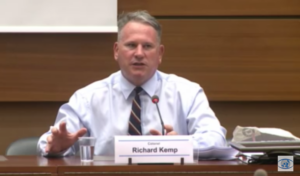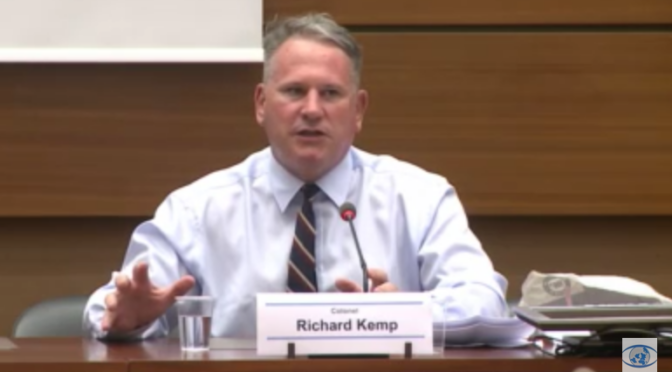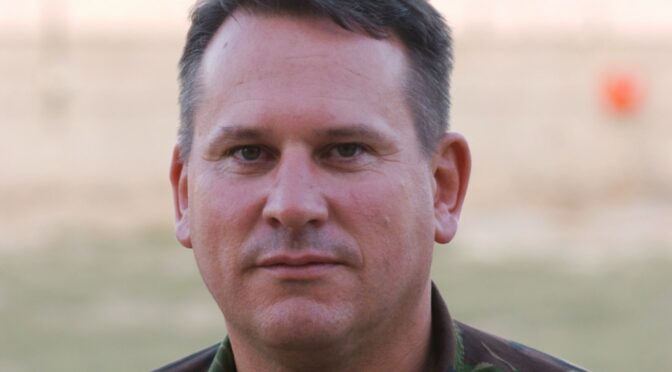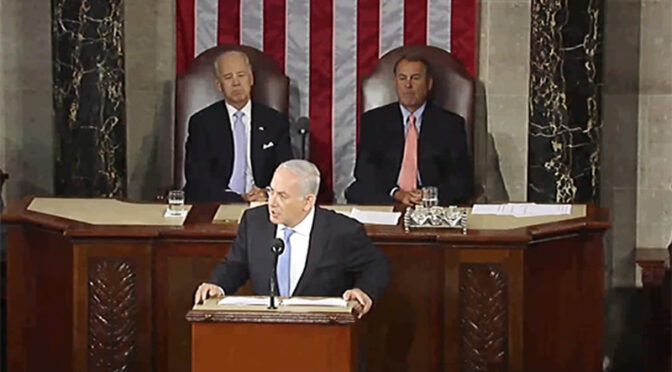SPEECH DELIVERED TO THE UN HUMAN RIGHTS COUNCIL IN GENEVA ON 29 JUNE 2015
Mr President, I fought in combat zones around the world during 30 years’ service in the British Army. I was present as an observer throughout the conflict in Gaza.
Mr President, during the 2014 Gaza conflict, Hamas, to its eternal shame, did more to deliberately and systematically inflict death, suffering and destruction on its own civilian population, including its children, than any other terrorist group in history.
Hamas deliberately positioned its fighters and weapons in civilian areas, knowing that Israel would have no choice but to attack these targets, which were a clear and present threat to the lives of Israel’s own civilian population.
While the IDF made efforts, unprecedented in any other army, and exceeding the requirements of the laws of war, to save Palestinian civilian lives, including warning them to leave targ et zones, Hamas forced them to remain in those areas.
et zones, Hamas forced them to remain in those areas.
Unable to defeat Israel by military means, Hamas sought to cause large numbers of casualties among their own people in order to bring international condemnation against Israel, especially from the United Nations.
This was the cornerstone of Hamas’s strategy. It was Hamas’s strategy, not illegal Israeli action, as this report shamefully alleges, without a shred of evidence, that was the reason why over 1,000 civilians died in Gaza.
By denying this truth, and by refusing to admit the manifest Continue reading




